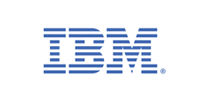
The ability to work with data and access databases is one of the most sought-after skills in our data driven economy. SQL and NoSQL skills are essential for anyone working with data and are listed as one of the top skills in job postings for professionals like Data Engineers, Database Administrators, Data Scientists, Data Analysts, Business Analysts, BI Specialists, Software / Application Developers, Data Architects, and Big Data Engineers.
Read more
The ability to work with data and access databases is one of the most sought-after skills in our data driven economy. SQL and NoSQL skills are essential for anyone working with data and are listed as one of the top skills in job postings for professionals like Data Engineers, Database Administrators, Data Scientists, Data Analysts, Business Analysts, BI Specialists, Software / Application Developers, Data Architects, and Big Data Engineers.
The ability to work with data and access databases is one of the most sought-after skills in our data driven economy. SQL and NoSQL skills are essential for anyone working with data and are listed as one of the top skills in job postings for professionals like Data Engineers, Database Administrators, Data Scientists, Data Analysts, Business Analysts, BI Specialists, Software / Application Developers, Data Architects, and Big Data Engineers.
This Professional Certificate is designed to provide you with the foundational knowledge, skills, and hands-on experience required to work with relational database management systems (RDBMSes), SQL (Structured Query Language), and NoSQL databases.
Organizations use relational databases (RDBMS) to manage and store data for its consistency and reliability, and SQL (Structured Query Language) to query and perform analysis for making critical and informed business decisions. Many organizations also deploy NoSQL databases for non-traditional use cases when scalability and high availability are needed.
Upon completing this program, you’ll have developed the skills and experience to work with relational databases like MySQL, PostgreSQL, and IBM Db2; query databases using SQL, as well as perform Create, Read, Update and Delete (CRUD) operations using NoSQL technologies and databases like MongoDB, Cassandra, and Cloudant.
Within each course, you’ll practice your skills with numerous hands-on labs and complete projects to add to your portfolio for demonstrating your proficiency using RDBMSes, SQL, and NoSQL.
To get started, all you need is basic computer literacy and the desire to learn and practice new skills.
What you'll learn
- Describe relational database (RDBMS) and NoSQL database concepts.
- Demonstrate working knowledge with RDBMSes like MySQL, PostgreSQL, and IBM Db2.
- Develop various types of SQL queries; including SELECT, INSERT, UPDATE & DELETE statements, utilize string patterns and ranges, and sort and group data in result sets.
- Create and manage tables, load and export data, and perform database backups and restores.
- Perform CRUD operations and demonstrate hands-on experience with NoSQL databases like MongoDB, Cassandra, and Cloudant.
What's inside
Two courses
Relational Database Basics
(10 hours)
Relational Database Basics
(10 hours)
NoSQL Database Basics
(12 hours)
NoSQL Database Basics
(12 hours)Save this collection
OpenCourser helps millions of learners each year. People visit us to learn workspace skills, ace their exams, and nurture their curiosity.
Our extensive catalog contains over 50,000 courses and twice as many books. Browse by search, by topic, or even by career interests. We'll match you to the right resources quickly.
Find this site helpful? Tell a friend about us.
We're supported by our community of learners. When you purchase or subscribe to courses and programs or purchase books, we may earn a commission from our partners.
Your purchases help us maintain our catalog and keep our servers humming without ads.
Thank you for supporting OpenCourser.



